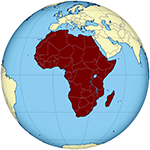The International Finance Corporation, the World Bank’s private sector lending arm, has toughened rules for employee engagement with client companies after a controversy over the way two executives in West Africa jumped to groups that had received investments from the body, Financial Times has reported.
A former IFC Vice-President for Latin America, sub-Sahara Africa and Western Europe, Mr. Thierry Tanoh, became chief executive designate of Ecobank Transnational the day before the IFC announced an increase of $100m in its investment in the pan-African bank.
Separately, the IFC’s recently departed chief executive, Mr. Lars Thunell, was appointed last year to a position on the board of Kosmos, the Texan oil company that has spearheaded exploration for Ghana’s offshore oil with a blend of private equity and IFC backing.
IFC officials have since confirmed that significant changes to staff rules, aimed at monitoring and averting potential conflicts of interest, were made following these moves, according to the Financial Times.
The changes included strict rules on how long a former senior staff member must be kept at arm’s length and closer monitoring by the IFC’s audit committee as soon as an employee begins employment negotiations.
“We take our ethical commitments very seriously. We regularly take stock of our guidelines and policies and strengthen or clarify them if needed, and we did so after the recent departures,” an IFC spokesperson said, according to the Financial Times.
The timing of Tanoh’s arrival at Ecobank in July 2012 created an impression in the market that “he had arrived with a dowry,” a senior banking official unconnected with either institution said.
Since then, Tanoh has become embroiled in a boardroom battle at the bank and his role in alleged corporate governance breaches is being looked into both internally and by Nigeria’s Securities and Exchange Commission. He denies any wrongdoing and has said he has no intention of resigning.
The IFC, which invests World Bank money, has been among ETI’s most consistent backers, investing over two decades with both debt and equity as the bank has expanded across African borders to build an unparalleled network in 34 African countries.
A spokesman for ETI said that, after accepting the job, Tanoh ceased any business dealings with the bank while he was serving out his notice at the IFC.
He received all necessary approvals from the IFC for the move, the spokesman said, and the IFC’s board, not Tanoh, had approved the investment.
The IFC increased its stake in the bank in response to a fundraising campaign by ETI that also attracted institutional investors from South Africa.
However, several other people from the World Bank group told Financial Times that there had been considerable discomfort among IFC staff members about the move given the onus on the institution as an investor of taxpayer’s money to provide a model for corporate governance best practice.
The issue had been a “very sensitive one,” according to a former senior official, in part because of the controversy that has since surrounded Tanoh in his new role.
By BusinessNews Staff on December 28, 2013






Comments (0)